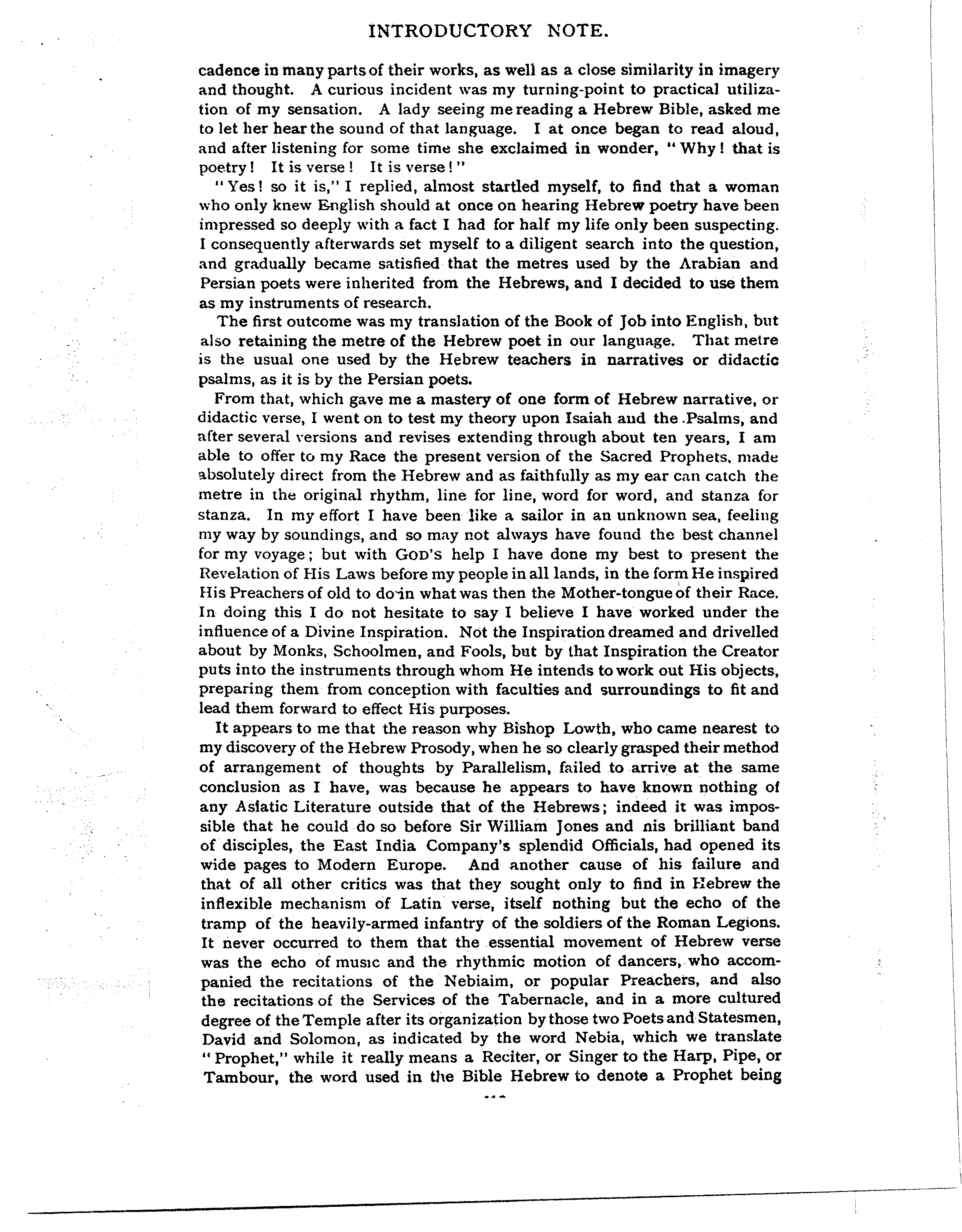II Kings - Ferrar Fenton Bible Translation page 413
The History of the People of Israel
who only knew English should at once on hearing Hebrew poetry have been impressed so deeply with a fact I had for half my life only been suspecting. I consequently afterwards set myself to a diligent search into the question, and gradually became satisfied that the metres used by the Arabian and Persian poets were inherited from the Hebrews, and I decided to use them as my instruments of research. The first outcome was my translation of the Book of job into English, but
also retaining the metre of the Hebrew poet in our language. That metre is the usual one used by the Hebrew teachers in narratives or didactic psalms, as it is by the Persian poets. From that, which gave me a mastery of one form of Hebrew narrative, or
didactic verse, I went on to test my theory upon Isaiah and the ,.Psalms, and after several versions and revises extending through about ten years, I am able to offer to my Race the present version of the Sacred Prophets. made absolutely direct from the Hebrew and as faithfully as my ear can catch the metre in the original rhythm, line for line, word for word, and stanza for stanza. In my effort I have been- like a sailor in an unknown sea, feeling my way by soundings, and so may not always have found the best channel for my voyage; but with GOD's help I have done my best to present the Revelation of His Laws before my people in all lands, in the form He inspired His Preachers of old to dorin what was then the Mothentongue of their Race. In- doing this I do not hesitate to say I believe I have worked under the influence of a Divine Inspiration. Not the Inspiration dreamed and drivelled about by Monks, Schoolmen, and Fools, but by that Inspiration the Creator puts into the instruments through whom He intends to work out His objects, preparing them from conception with faculties and surroundings to fit and lead them forward to effect His purposes. It appears to me that the reason why Bishop Lowth, who came nearest to
my discovery of the Hebrew Prosody, when he so clearly grasped their method of arrangement of thoughts by Parallelism, failed to arrive at the same conclusion as I have, was because he appears to have known nothing of any Asiatic Literature outside that of the Hebrews; indeed it was impos- sible that he could do so before Sir William jones and his brilliant band of disciples, the East India Company’s splendid Officials, had opened its wide pages to Modern Europe. And another cause of his failure and that of all other critics was that they sought only to find in Hebrew the inflexible mechanism oft Latin verse, itself nothing but the echo of the tramp of the heavily·armed infantry of the soldiers of the Roman Legions. It never occurred to them that the essential movement of Hebrew verse was the echo of music and the rhythmic motion of daucers,.wh0 accom- panied the recitations of the Nebiaim, or popular Preachers, and also the recitations of the Services of the Tabernacle, and in a more cultured degree of the Temple after its organization by those two Poets and»Statesmen, David and Solomon, as indicated by the word Nebia, which we translate while it really means a Reciter, or Singer to the Harp, Pipe, or Tambour, the word used in the Bible Hebrew to denote a Prophet being
